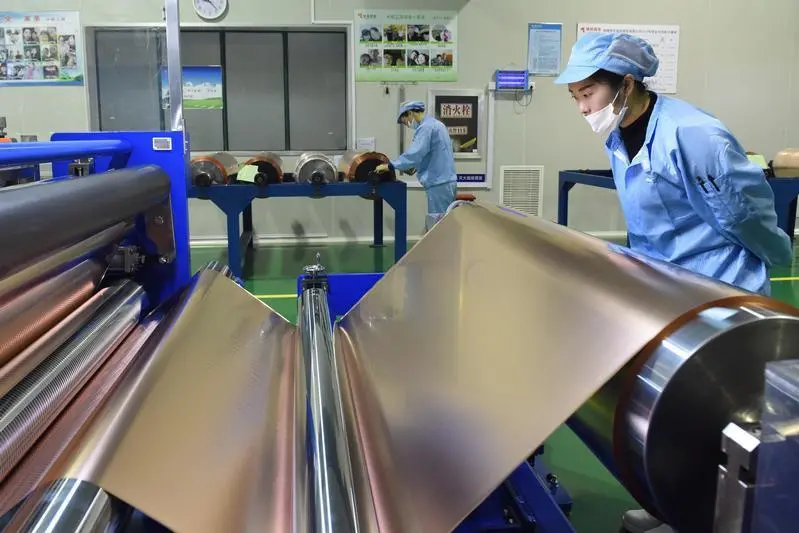PHOTO
Copper prices fell on Tuesday as weak economic data from top consumer China and rising inventories in most global warehouses pressured demand outlook for the metal.
Three-month copper on the London Metal Exchange (LME) fell 0.4% to $9,763 per metric ton by 0633 GMT, while the most-traded August copper contract on the Shanghai Futures Exchange (SHFE) declined 0.5% to 79,210 yuan ($10,902.66) a ton.
Copper inventories in LME-approved warehouses, Comex warehouses, bonded warehouses in China as well as warehouses designated by the Shanghai International Energy Exchange increased so far in July, pointing to weak demand.
"Metals are turning quite sensitive to the stock reports. So changes in exchange warehouses' stocks would be a key point to watch," said Sandeep Daga, a director at Metal Intelligence Centre.
China's economy grew much slower than expected in the second quarter, painting a weak demand picture as the country accounts for around half of copper demand annually.
However, the data boosted stimulus hopes from China, even though most market participants do not expect a specific metals-intensive measure.
Speculative interest in copper has improved slightly, evidenced by fund managers holding a net long position of 43,403 contracts on the CME copper contract as of July 8, the first increase since May 20 when copper hit a record high price.
But the uptick is minimal and is supported by the slow arrival of stocks in Comex warehouses, said Daga, which is only around 1,000 tons so far in July compared to an expectation of 50,000 tons.
LME aluminium eased 0.5% to $2,450 a ton, zinc edged down 0.5% at $2,940, tin shed 0.5% to $33,075, while nickel rose 0.3% to $16,750, and lead was nearly flat at $2,187.50.
SHFE aluminium fell 1.2% to 19,810 yuan a ton, nickel declined 0.7% to 133,630 yuan, tin shed 0.5% to 273,220 yuan, while zinc rose 0.1% to 24,285 yuan and lead was up 0.7% at 19,730 yuan.
For the top stories in metals and other news, click or
($1 = 7.2652 yuan)
(Reporting by Mai Nguyen in Hanoi; Editing by Rashmi Aich and Eileen Soreng)





















